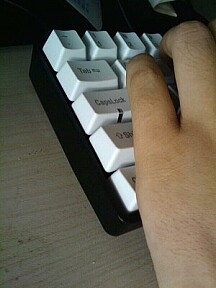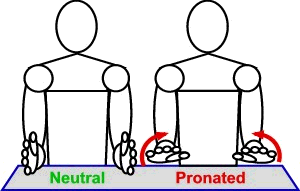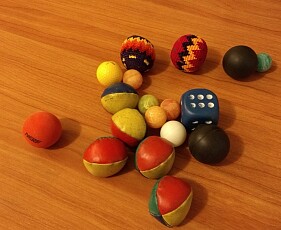Bad Keyboard Advice from Programers
Do not listen to programers for typing advice
If you are a programer, you probably have seen programers talk about keyboard, or how to press the control key.
It's all WRONG!
If you want good advice for healthy and efficient typing, ask professional data-entry clerks, not programers.
Here is common wrongs of programer's advice about keyboarding.
- Typing advice and keyboard advice for light-duty typing (programer) is not good for heavy-duty typing (writers and data-entry clerk), and vice versa.
- Typing advice for hunt-and-peck typer is not good for touch-typer, and vice versa.
- The SPECIFIC keyboard you use has major impact on your typing habit and health. Even on keyboards that have the same shape and form (such as Logitech keyboards).
Following are details.
Just How Much You Type, Really?
Good typing advice from 30 minutes per day worth of typing (programers) is bad for 2 hours per day typing (data entry clerks), and vice versa. Same for keybinding considerations.
If you are a programer, try to use a key logger. You'll be surprised how much you actually type.
For detail, see: How Many Keystrokes Do You Type a Day?
Do You Touch Type?
Good keyboard choices for non-touch-typers are NOT good for touch-type, and vice versa.
Similarly, what's good keybinding (e.g. should you remap control key to capslock) are drastically different for touch-typers and none.
If you no touch type, you really no have lots problems, simply because your load is naturally low. But if you force yourself to type the amount that writers do, you'll get hand pain in a few months.
On the other hand, here's a example where touch-type creates a problem that Hunt-and-Peck wouldn't have. If you use Ctrl+x for copy, normally it's fine. But, if you have to do that 10 times more frequently, and using touch-typing method to type the x, you may get RSI. I did. This happened to me because we added a feature to ergoemacs-mode so that cut will cut current line if there is no selection, and i find it so convenient that i spontaneously started to use it for cutting entire blocks of text or deleting text by repeatedly pressing Ctrl+x. Because i touch-type, so i press the x by the weak 4th finger while right-hand holding down the Ctrl. Then, i got RSI symptoms, and eventually traced it to pressing x. (You can read a detailed account of this, at: The Roadmap to Completely Replace Emacs's Key System, Part 1)
Subtle Differences in Keyboard Have Major Impact on Hand-Health and How You Press Keys
Bad Typing Advice from Programers
In programing forums, keyboarding opinions are very vocal. Lots of unscientific claims that persist.
I Swap Capslock and Control and Never Had Problem?
Some programers claim to have used certain habit and never have a problem.
A [Ctrl] to the left of [A] is natural and what I've been using since the mid-1960s with absolutely NO problems or RSI whatsoever beginning with a TTY ASR33 and continuing with a Datapoint 3300, DEC VT100, Datamedia DT80 and others along the way to today.
Some people smoke cigarettes all their life but never got cancer.
Maybe, if you do data entry work you'll get RSI within a month.
Remember, log your keys and see how much you actually type. How Many Keystrokes Do You Type a Day?
〔see Emacs: Why You Should Not Swap {CapsLock, Control} Keys〕
Don't Touch Type?
Ergonomic Keyboards are Useless?
Some programers claim that they do fine on normal flat keyboard and conclude that those Ergonomic Keyboards are not useful.
Some couch potatoes never have back pain neither!
You can test many aspects of keyboarding yourself. You can conduct experiment to see which key choices are better among two. Or, which of the two keyboard is more ergonomic. Or, whether swapping Ctrl and CapsLock is better or Ctrl and Alt. The important thing here is that you must actually put effort and time on this as a DEDICATED STUDY. For example, from today on, actually put 1 hour aside, to explore many of questions about keybinding or keyboard. Do this persistently for 1 month as a job.
Experience-based judgement are often clouded by habit and the specific keyboards you are using.
In doing experiments, you have to be careful in the experiment in eliminating bias, such as your habit, familiarity, and the specific keyboard you are using, if you want the result to be general and for others as well.
Typing Habits, RSI
- Typing Habits, Hand Health. Index
-
 How to Press Control Key (Palm-Press)
How to Press Control Key (Palm-Press) -
Proper Sitting Posture
-
 Keyboard Tenting, Forearm Pronation
Keyboard Tenting, Forearm Pronation -
 Best Palm Rest
Best Palm Rest -
 RSI Hand Toys
RSI Hand Toys - Bad Keyboard Advice from Programers
- How Many Keystrokes Do You Type a Day?
- Undo Cut Shortcut Keys Are Bad
- Mechanical Keyboard and RSI
- Touch-Typing, a Relic of Keyboard Design?
- How to Increase Efficiency in Using Mac, Linux, Windows